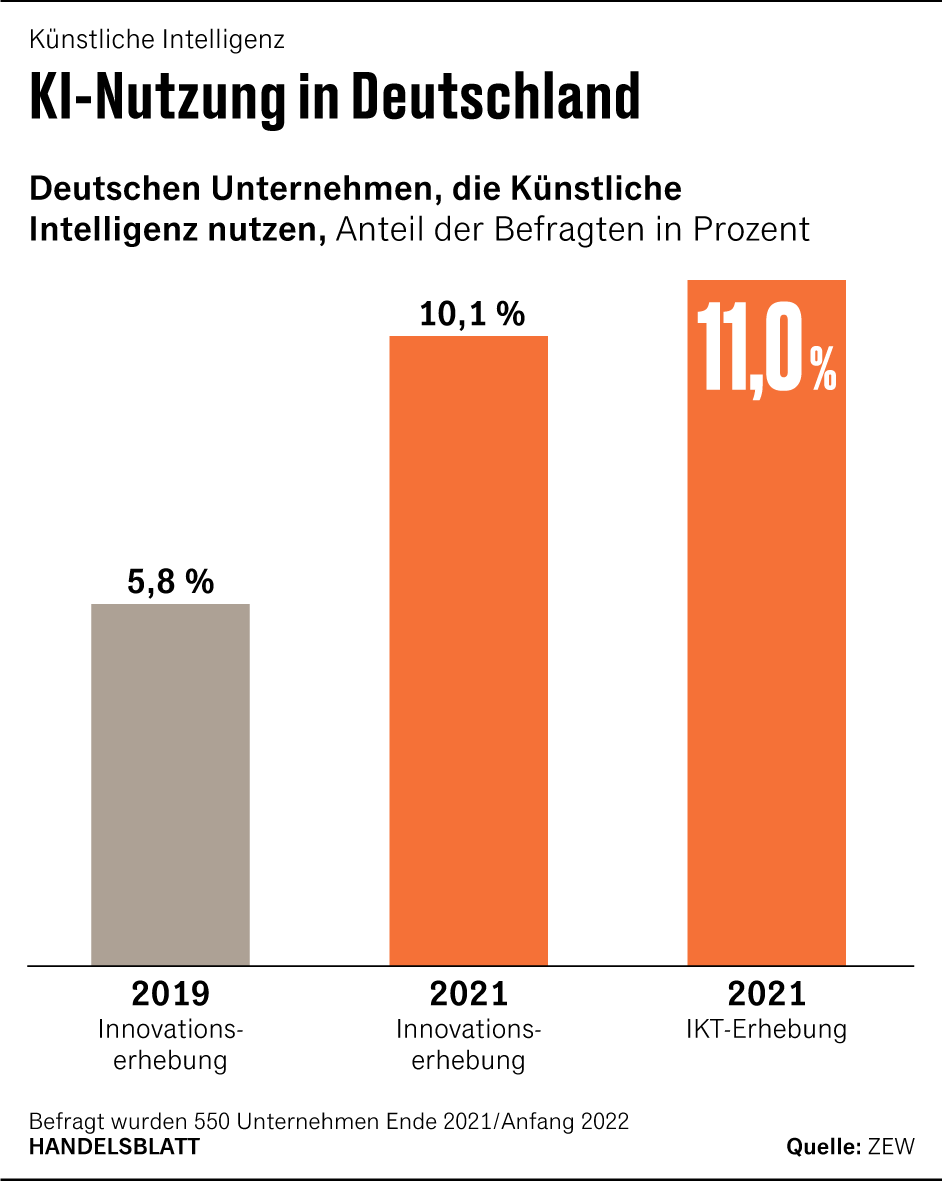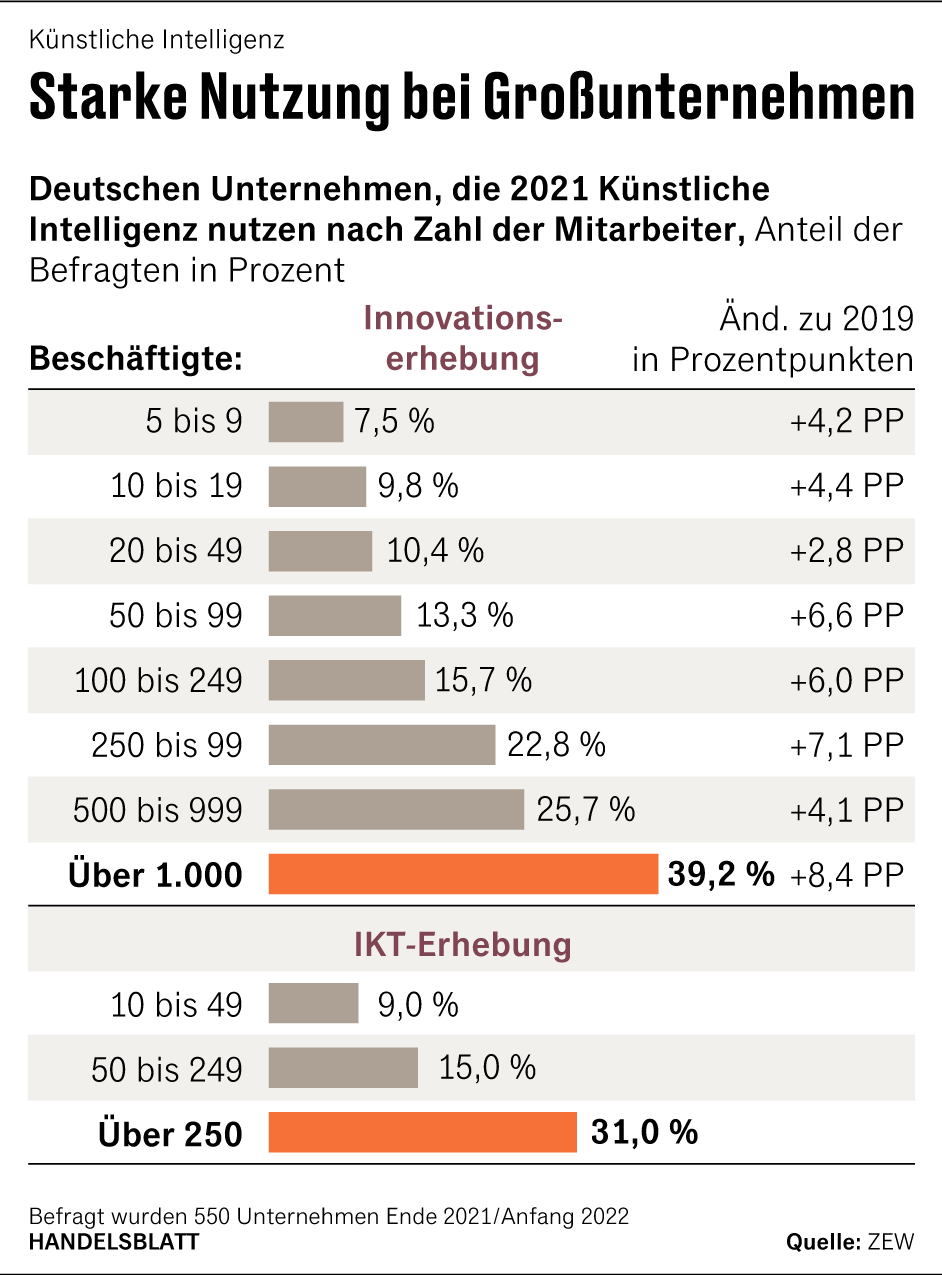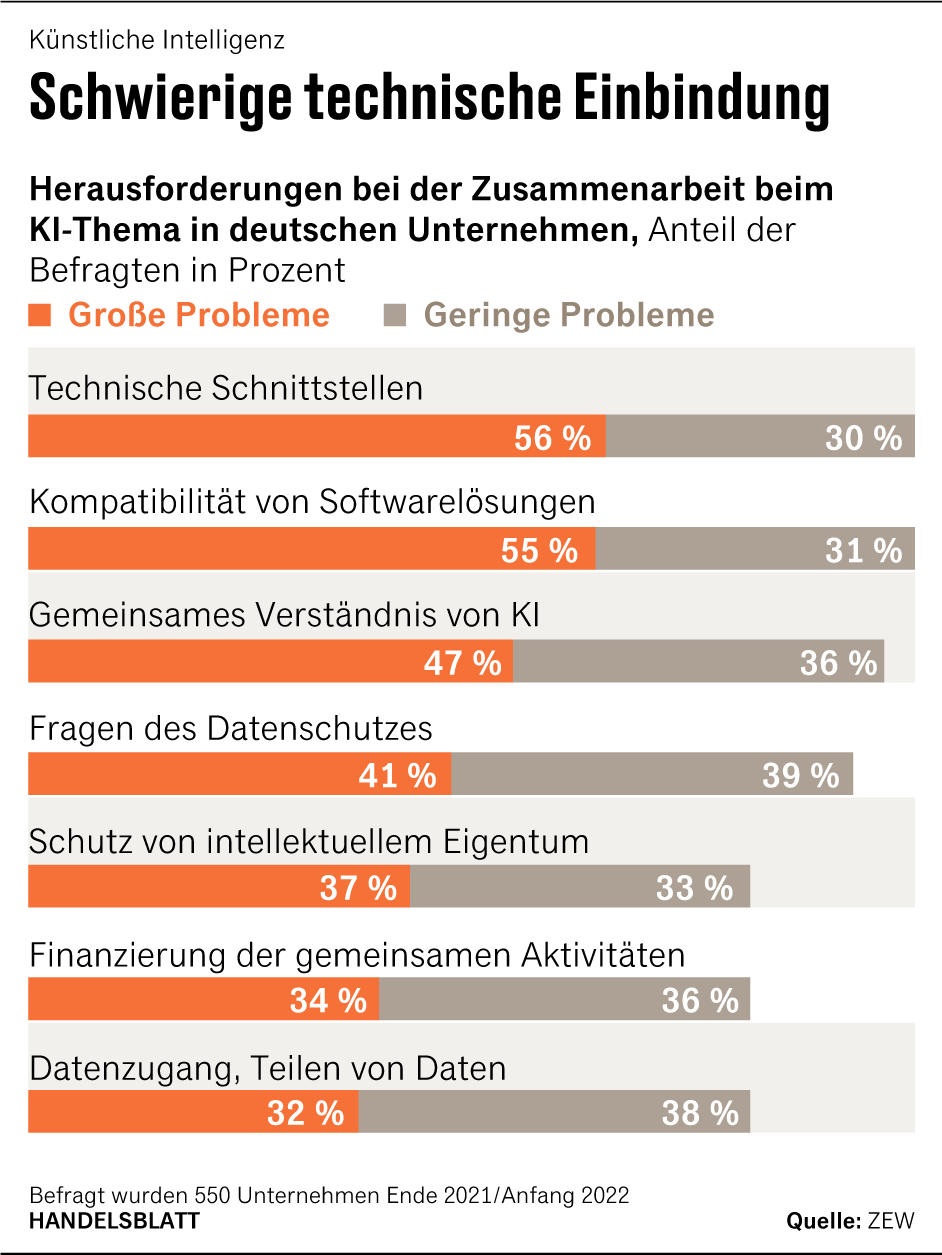Berlin, Düsseldorf The share of companies in Germany that actively use artificial intelligence (AI) exceeded the ten percent mark last year. Compared to 2019, the number of companies using AI has almost doubled. This is shown by a recent survey by the Leibniz Center for European Economic Research (ZEW) for the Federal Ministry of Economics, which is available to Handelsblatt.
The institute also surveyed 550 AI-active companies about the use of the technology in more detail around the turn of the year. The use is therefore particularly widespread among information and communication service providers, financial service providers as well as engineering offices, corporate, legal and tax consultants and advertising agencies. In industry, there are the highest shares in the electrical industry, vehicle construction and mechanical engineering.
“The topic is hot,” says Sabine Laukemann, member of the Management Board of the medium-sized IT service provider Datagroup from Stuttgart. “We are being approached by customers from all industries.“
The main areas of application of AI so far are speech recognition, automation and optimization of processes, machine learning and so-called text mining, in which texts are evaluated with software. “AI is not only about automation, but also about expanding and multiplying the business model,” says Laukemann. “It used to be a specialist topic, but today it concerns everyone.“
The central role played by AI can be seen in the automotive industry. Artificial neural networks based on the human nervous system are an important component of assistance systems and autonomous driving systems of vehicles. The numerous information from cameras, radar and lasers is processed by an AI in the car, which makes vital decisions.

Electric car pioneer Tesla is relying on AI more radically than any other car manufacturer. For this purpose, the company is developing a so-called computer vision that detects objects in traffic with high speed and precision in order to be able to let the car drive by itself. Recently, Tesla CEO Elon Musk announced that he would hold an “AI Day” in August to “attract new talent to Tesla”.
Many companies are still at the beginning
Overall, the ZEW attests to a “quite high level of technical competence as well as a good organizational anchoring of the topic of AI”. The willingness to cooperate with scientists or other companies is also “extraordinarily high”.
However, most companies have just entered the topic. Currently, around one fifth of the AI-active companies surveyed are “in the experimental stage”, another two fifths have at least developed initial use cases. This shows how quickly AI is spreading in the economy. However, only in every seventh company that uses AI, it already forms the basis for the company’s business model.

In order to provide support, politicians must quickly improve the framework conditions, the ZEW demands: They must ensure that AI is placed on the curricula in schools and universities. And because many companies have deficits, especially in non-technical areas, business administration and law must also be taught what AI can be used for. In addition, a more comprehensive range of consulting services is needed.
Further prerequisites for AI to experience a breakthrough in the economy are the establishment of a cloud infrastructure and the development of standards, the nationwide expansion of a powerful IT infrastructure as well as legal regulations to improve access and the possibilities of using data.
Use of AI is often driven by bosses
So far, it is mainly the bosses who are pushing the use of technology. “Our own AI teams and the development of AI use cases in all areas of the company can only be found in a minority of AI-active companies,” says ZEW innovation expert Christian Rammer. In addition to proactive management, these are “often a prerequisite for a high effectiveness of the use of artificial intelligence”.

In particular, most AI-active companies also have in-house employees with skills for handling data and developing software solutions. On the other hand, methodological skills for machine learning and the explainability of AI results are less widespread.









